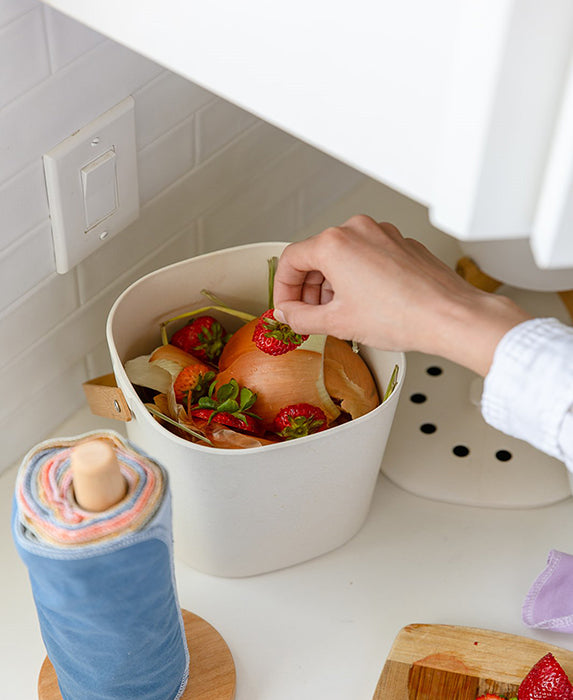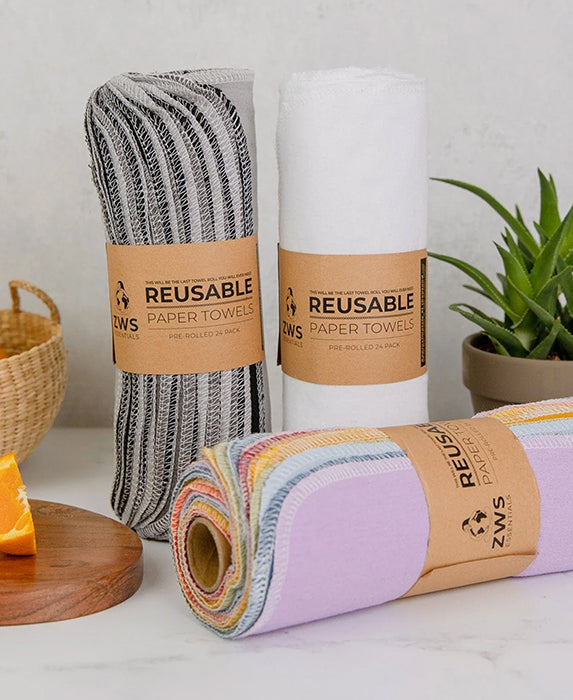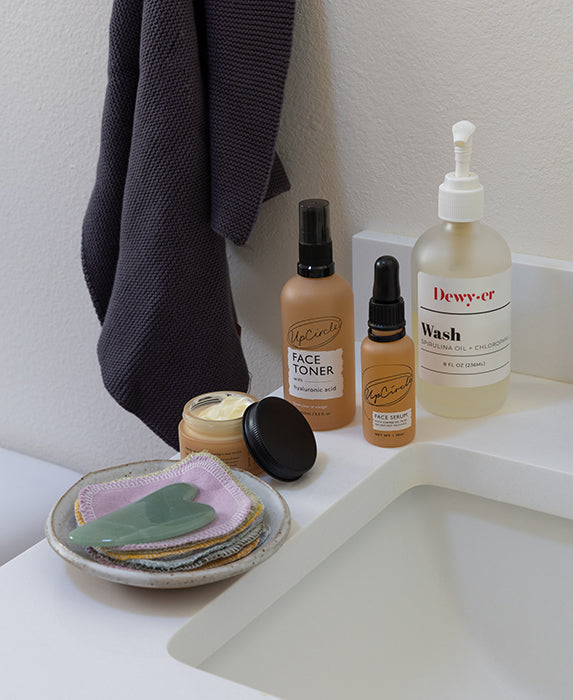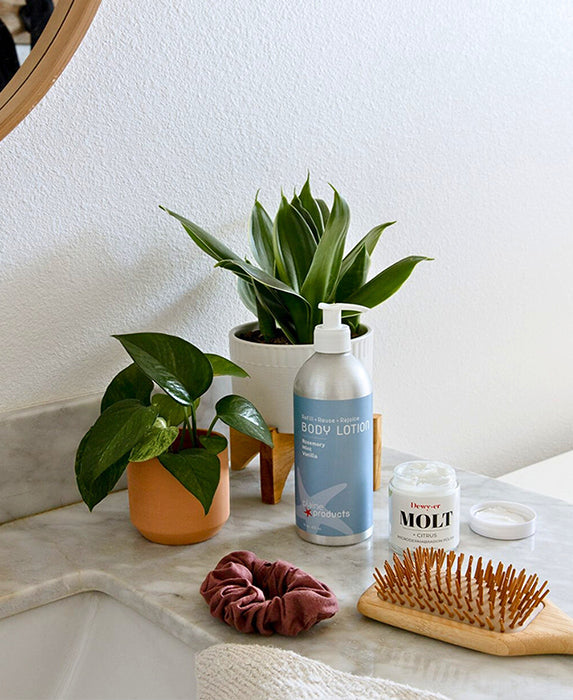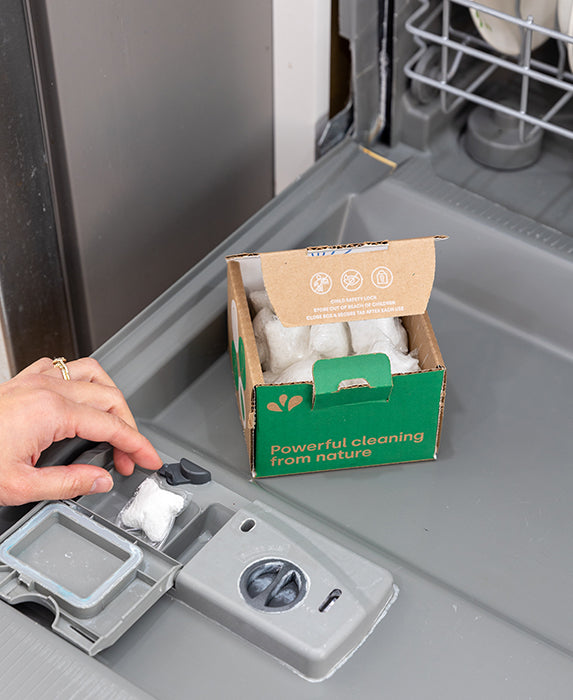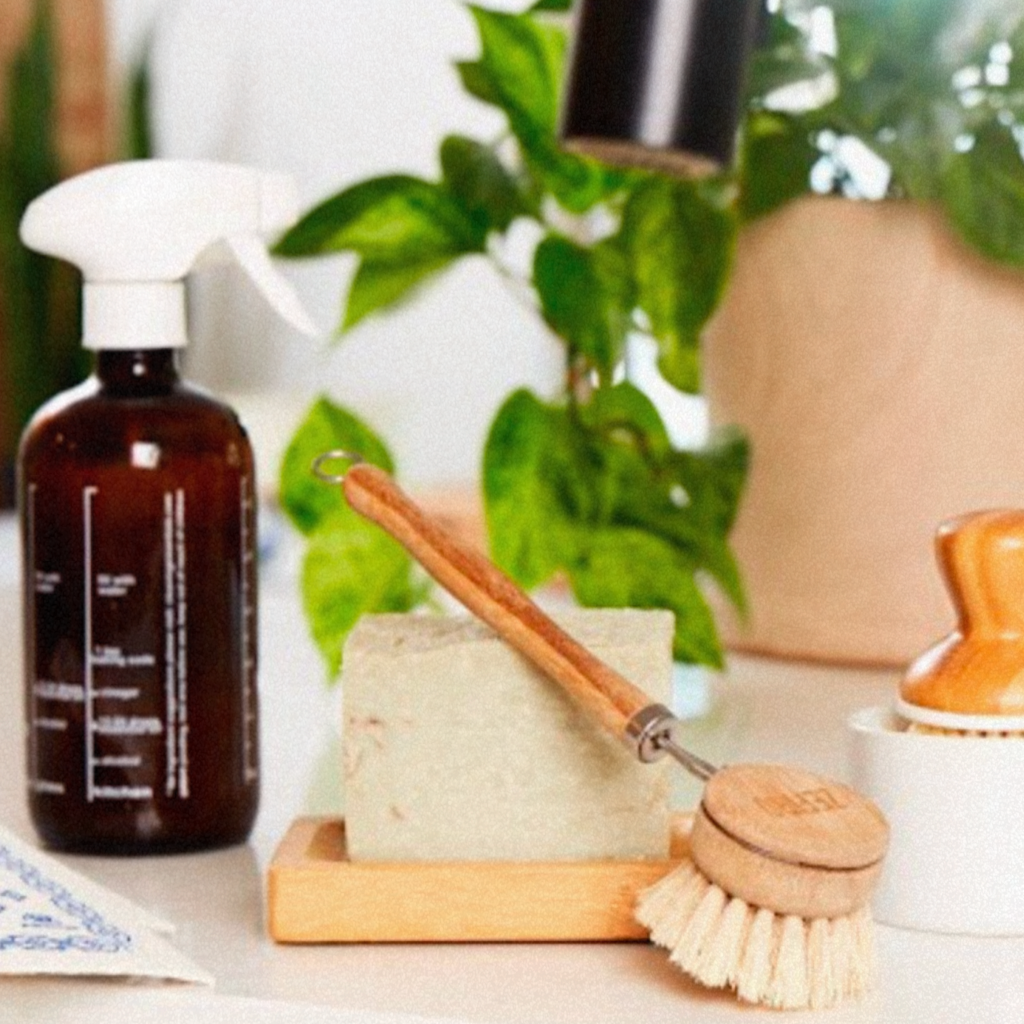Toxic Ingredients to Avoid in Cleaning Products
There are a lot of different chemicals in conventional home cleaning products, and many of them can be harmful to human health. They can include things like:
- Endocrine disruptors such as phthalates, which are often hidden under the word "fragrance" on ingredient labels
- Carcinogens, such as formaldehyde and 1,4-dioxane
- Asthmagens and irritants, such as chlorine, bleach, and isothiazolinones
- Ammonia, which can corrode human cells
- Certain antimicrobials like "quats," which can be irritating, are linked to reproductive harm, and can contribute to antibiotic resistance
Using these ingredients can add volatile organic compounds (VOCs) to your air, increasing indoor air pollution and adding to your total body burden. That's one reason why many people have made the switch to using non-toxic cleaning products in their homes. Of course, it’s especially important for those with allergies or asthma, sensitive skin, multiple chemical sensitivity, cancer, autoimmune disease, or other conditions.
The good news is that it's pretty easy to make swaps to safer cleaning products while also reducing waste and simplifying your life at the same time.
How to Reduce Waste and Toxins at the Same Time
Reducing plastic use is not only a good move for the planet, but it can be helpful for human health as well. Not only can plastic bottles and other products expose humans to endocrine-disrupting chemicals like bisphenols and phthalates, but they also lead to more microplastics in our environment as a whole. Although there is currently little scientific data on microplastics' impact on human health, early research doesn't look good.
Here are some ways to transition to a non-toxic cleaning routine while reducing waste at the same time:
1. Use what you already have at home.
There's a good chance you already have many cleaning necessities in your cabinets!
For example, you probably already have a spray bottle of some kind lying around. Instead of buying a new one, you can use that bottle to make your own all-purpose cleaner. Just mix 1/2 cup of distilled white vinegar with two cups of water. You can even add a few drops of your favorite essential oil or squeeze in a citrus fruit from your kitchen.
Baking soda is another excellent cleaning ingredient you probably already have in your house. It can make a great scrub for showers and sinks, help clear drains, eliminate smells from carpets and trash cans, and more.
Other common household products you can use for natural DIY cleaning include:
2. Go for a truly all-purpose product.
If DIY-ing is not your thing, look for truly all-purpose cleaning products. Many brands manufacture a bunch of different products, a different one for each type of surface and area of the home... But that's not always necessary. You may not need separate cleaning products for your kitchen, bathroom, windows, floor, etc.
Meliora's All-Purpose Home Cleaner, for example, is effective on most surfaces: wood, glass, stone, natural tile, porcelain, stainless steel, plastic, marble, grout, laminate, carpet, and painted walls. (Of course, you should always do a spot test before using it for the first time, just in case!)
Using a product like this can not only significantly reduce waste in the long run, but it can also save you time and energy researching a bunch of different formulations to make sure they're genuinely safe and non-toxic.
3. Embrace concentrates, refillables, and reusables.
This is a no-brainer for those living a zero- or low-waste lifestyle. And the good news is that plenty of cleaning products offer refillable options that are either completely plastic-free or come with very minimal plastic.
Earthy Edith's, for example, offers both refills and concentrates of their All-Purpose Cleaner, which come in glass jars. Meliora offers refills for all of its products as well. Its laundry powder refill, for example, comes in a simple brown paper bag that you can compost after use.
You can also switch up the cleaning tools you use to get rid of disposables. Here are a few ideas:
- Instead of paper towels, you can use reusable cloth towels made from organic cotton (like these or these). Not only can this reduce waste and save trees, but it can also help decrease exposure to toxic chlorine byproducts that result from the bleaching process of conventional paper towels.
- Instead of dish sponges that don't last very long (and are also often made from plastic), you can use a reusable dish brush that will last you years.
- Instead of Swiffer dusters, you can wet dust using a regular old rag and some all-purpose cleaner. Wet dusting is another great way to decrease the number of toxic chemicals you and your family are exposed to in your home, since ingesting household dust is one of the primary ways things like flame retardants and PFAS chemicals get into our bodies. These chemicals wear off of our furniture and other products and land in the dust, where we can then breathe them in or ingest them through hand-to-mouth contact.
One last tip: Look for third-party certifications, which can help you identify brands that have passed certain criteria for transparency and safety. Meliora, for example, is a home cleaning line that's MADE SAFE™ Certified, which means its products have been verified to be free from a robust list of banned ingredients.
Finding your non-toxic and zero-waste cleaning flow can help you reduce your impact on the earth while providing a healthier home environment for you and your loved ones. Everyone has different preferences for keeping their home clean, so feel free to try out different non-toxic cleaning products until you find a few that work for you. Once you find your favorite, you can subscribe and save to get refills sent to you automatically so you don't run out.
About the Author: Abbie Davidson is a writer at The Filtery, a digital platform that provides curious citizens with well-researched and practical solutions for decreasing the toxins in their bodies and homes.

